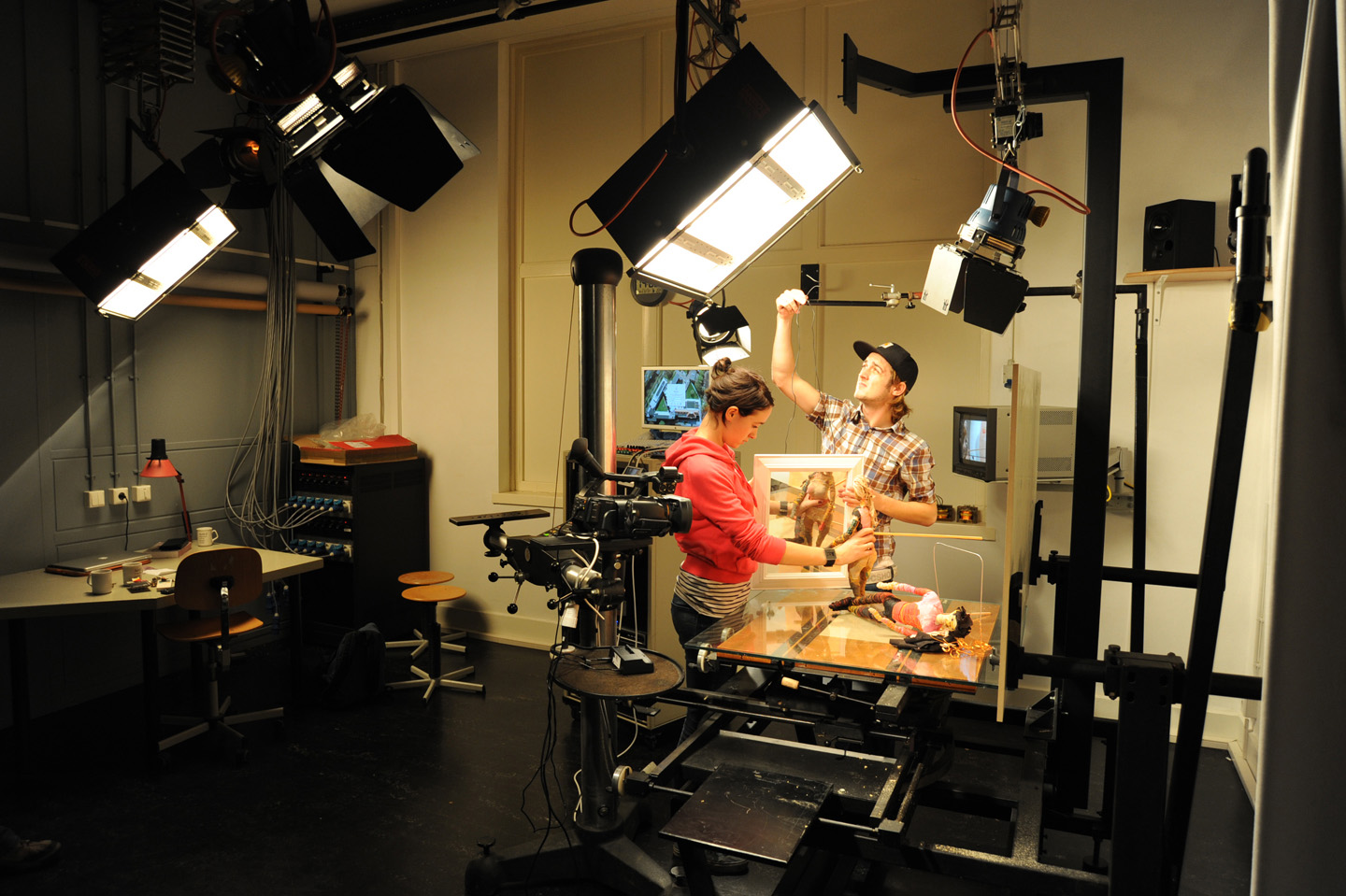Study
StudyDuring the Animation Design course, there is a strong focus on telling stories with moving images. By drawing and creating a lot both by hand and using digital techniques, you will develop your own way of looking and telling stories.
Experimental animation
Working on artistic products requires initiative, courage, flexibility and tenacity. Animating is a laborious craft. You are constantly challenged to push your boundaries and look for an authentic and innovative way of telling stories with animation. The story determines the choice of medium: stop-motion, analogue animation or 2D animation. You will be exposed to various techniques where you can experience for yourself what suits you as a maker.
Traditional and experimental animation
To work on artistic products, you need initiative, courage, flexibility and perseverance. Animation is a craft, whereby you learn to tell stories through moving images. Besides learning to plan the process, you can work in a professional team context, you learn to use free association and to experiment. You are continuously challenged to push your boundaries and to look for an authentic and innovative way to tell and express stories. You create work that has meaning for your audience.
Observation as a starting point
During the course, there is a strong focus on perception as the starting point for your images. Perception is about the form of representation as well as about understanding and interpreting what you see. You learn to look sharply and critically and ask questions about what you are looking at. Drawing/painting by observation is important to create recognisable images. It is one of the tools for creating both characters and spaces that appear natural.
Course structure
Interdisciplinary projects
Twice a year, the programme organises an ArtEZ University of the Arts Zwolle artistic interdisciplinary programme in which students from different programmes collaborate with fellow students under the guidance of artistic professionals. See, for example:
- Winterlab
- Summerlab
Techniques and workplaces
On the course, we use various techniques. These include (digital) drawing and stop-motion. Stop-motion can be done in many different ways: paper-cut, collage, drawing, painting, clay animation, puppet animation, animation in a 3D built set. You can also work with combinations of techniques, for example using video mapping in a built set or applying computer-generated special effects afterwards.
As an animation student, you will make intensive use of the excellent studio facilities: a professional photo studio, a film studio with green screen, stop-motion animation studio with workstations, editing suites, a sound recording studio, small studios with special animation tables for cell animation and digital drawing studios.
Doing research outside of your regular class hours
When you study at ArtEZ, you also get acquainted with research. Think of theory classes, material research, and socially engaged research. Within your course, there is ample support and space to discover what kind of artistic researcher you are. But outside your regular class hours, there are also special initiatives, activities, and workshops where you can work on research. Especially for students who seek further depth. Curious? Then quickly read more about the (extracurricular) research activities.
Study costs
You pay tuition fees every academic year. Depending on your nationality and previous degrees, among other things, you pay either the statutory or institutional tuition fees. Check here for more information and to calculate your tuition fee rate.
Studying in Zwolle
Zwolle is a dynamic Hanseatic city, with winding streets and many original shops and dining spots. This is where creative students, innovative entrepreneurs and headstrong freethinkers easily find each other. You can find more information about studying in Zwolle here.
